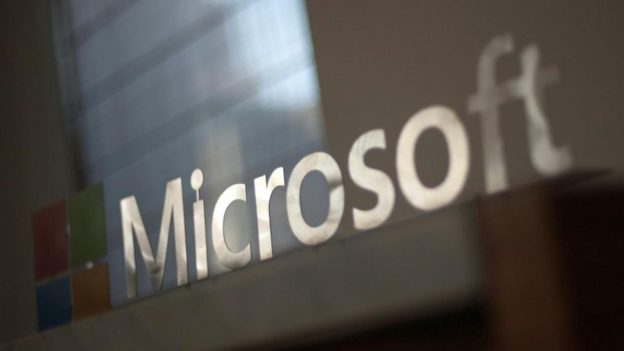Countries have been vying toward clean energy, with most developed nations planning to achieve carbon neutrality by 2050. Several startups have achieved success thanks to their green energy initiatives, including the blockbuster electric vehicle maker Tesla, Inc. (NASDAQ:TSLA).
Companies are now focusing on producing clean energy through nuclear fusion, which is often considered the epitome of green power, as it can produce nearly unlimited energy without any harmful byproducts. As of 2022, investors across the globe have invested a staggering $5 billion in privately owned fusion companies to transform the elusive fusion dream into a practical source of electricity coursing through power grids, according to the Fusion Industry Association (FIA). Remarkably, private funding in the fusion industry has approximately doubled since 2021.
Don’t Miss:
- Until 2016 it was illegal for retail investors to invest in high-growth startups. Thanks to changes in federal law, this Kevin O’Leary-Backed Startup Lets You Become a Venture Capitalist With $100
- Airbnb was worth $47 billion at IPO. This New ‘Airbnb For RV’s’ Platform Takes On The $540 Million RV Rental Market With 25% In Savings And $50,000 For Renters is open for anyone to invest.
Helion: Altman-backed Game Changer
Established in 2013, Helion Energy is a fusion research company aiming to generate low-cost, clean electricity. The company is currently in the process of building the “world’s first fusion power plant,” which is estimated to be operational by 2028.
Sam Altman, co-founder and CEO of OpenAI, maker of ChatGPT, is Helion’s biggest investor, with a staggering $375 million investment back in 2021. Helion has raised $577 million in funding as of May 2023.
The potential of fusion is “unbelievably huge,” Altman said, “If we can get this to work — if we can really deliver on the dream of abundant, cheap, safe, clean energy that will transform society. It’s why I’ve been so passionate about this project for so long.”
To date, Helion has successfully generated energy through its fusion prototypes. However, the company has not yet developed a device that produces a surplus of electricity compared to the energy it consumes to operate the fusion device. Therefore, there is still a significant amount of work ahead for the firm.
Should Helion achieve success, it will mark a significant milestone for the entire field of fusion technology, marking the beginning of the “fusion era,” as stated by the company’s CEO David Kirtley.
“Either the technology here is going to work or not. There’s a lot of huge challenges still to figure out — how are we going to get the cost super-low, how are we going to manufacture at scale — but on the ability to actually do the physics, we feel very confident,” Altman added.
To stay updated with top startup news & investments, sign up for Benzinga’s Startup Investing & Equity Crowdfunding Newsletter.
Industry-First Partnership
Altman and Microsoft go way back, with the latter a major investor in OpenAI. Thus, it comes as no surprise that Altman-backed Helion managed to secure an industry-first power purchase agreement contract with Microsoft on May 10.
Notably, this isn’t the first time Helion collaborated with Microsoft. “The first visit we had from the Microsoft team was probably three of our prototypes ago, so many years ago. And then we’ve been working very closely with their data center technology team here in Redmond,” Kirtley stated.
This agreement signifies a significant show of support for fusion technology, which mimics the sun’s power generation process and offers the potential for nearly unlimited clean energy, provided it can be effectively harnessed and made commercially viable across the globe.
Microsoft’s commitment to purchasing electricity from Helion represents the first instance in which a fusion company has formalized an agreement to distribute electricity, according to FIA CEO Andrew Holland.
“This is the first time that I know of that a company has a power purchase agreement signed,” Holland stated, “No one has delivered electricity, and Helion’s goal of 2028 is aggressive, but they have a strong plan for how to get there.”
Under the terms of the power purchase agreement, Helion is anticipated to have its fusion generation device operational by 2028 and achieve its specified power generation goal of 50 megawatts or more during a mutually agreed-upon one-year ramp-up period. Once the fusion device is operating at full capacity, generating 50 megawatts of energy, it will have the capacity to supply power to approximately 40,000 households in Washington state.
Helion’s initial agreement with Microsoft involves bringing 50 megawatts of electricity online. However, Helion’s long-term goal is to generate one gigawatt of electricity, equivalent to one billion watts, which is 20 times the capacity they are currently supplying to Microsoft. As Helion feeds electricity into the grid, Microsoft will compensate them based on the megawatt hours delivered.
“This is a real PPA [purchase price allocation], so there’s financial penalties if Helion can’t deliver power. So we’ve really put our skin in the game on this too — that we believe we can deliver this power and are committed to it with our own financial incentives,” Kirtley added.
See more on startup investing from Benzinga.
- Robinhood democratized stock market investing, but this New Startup Investing Platform Beats Robinhood And Webull By A Mile, Letting Anyone Invest In Startups, Collectibles And A New Mini Startups Stock Market
- Are Wall Street’s days numbered? This platform’s game-changing solution could disrupt finance forever.
Don’t miss real-time alerts on your stocks – join Benzinga Pro for free! Try the tool that will help you invest smarter, faster, and better.
This article Microsoft Powers Up with Helion Fusion: A Game-Changer in Clean Energy originally appeared on Benzinga.com
https://finance.yahoo.com/news/microsoft-powers-helion-fusion-game-203950539.html





